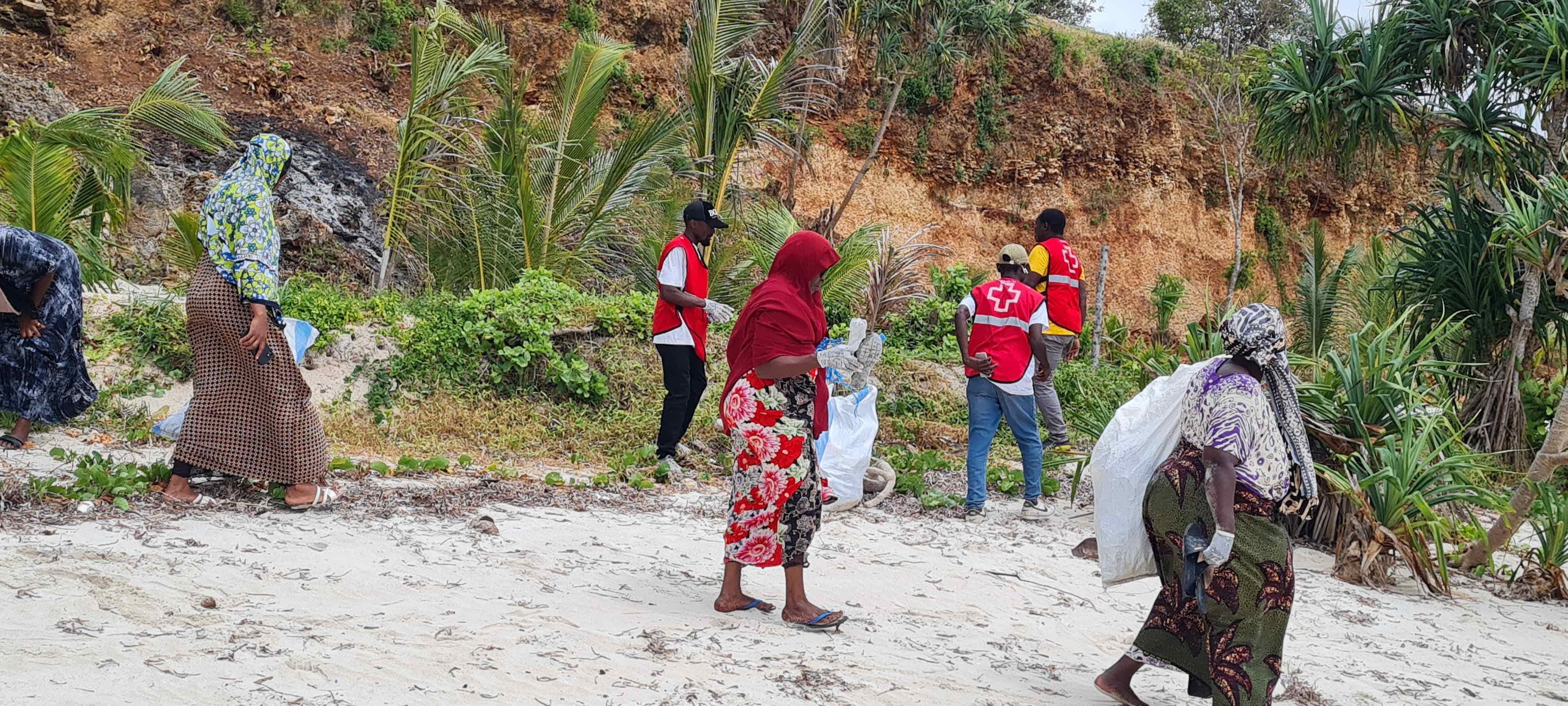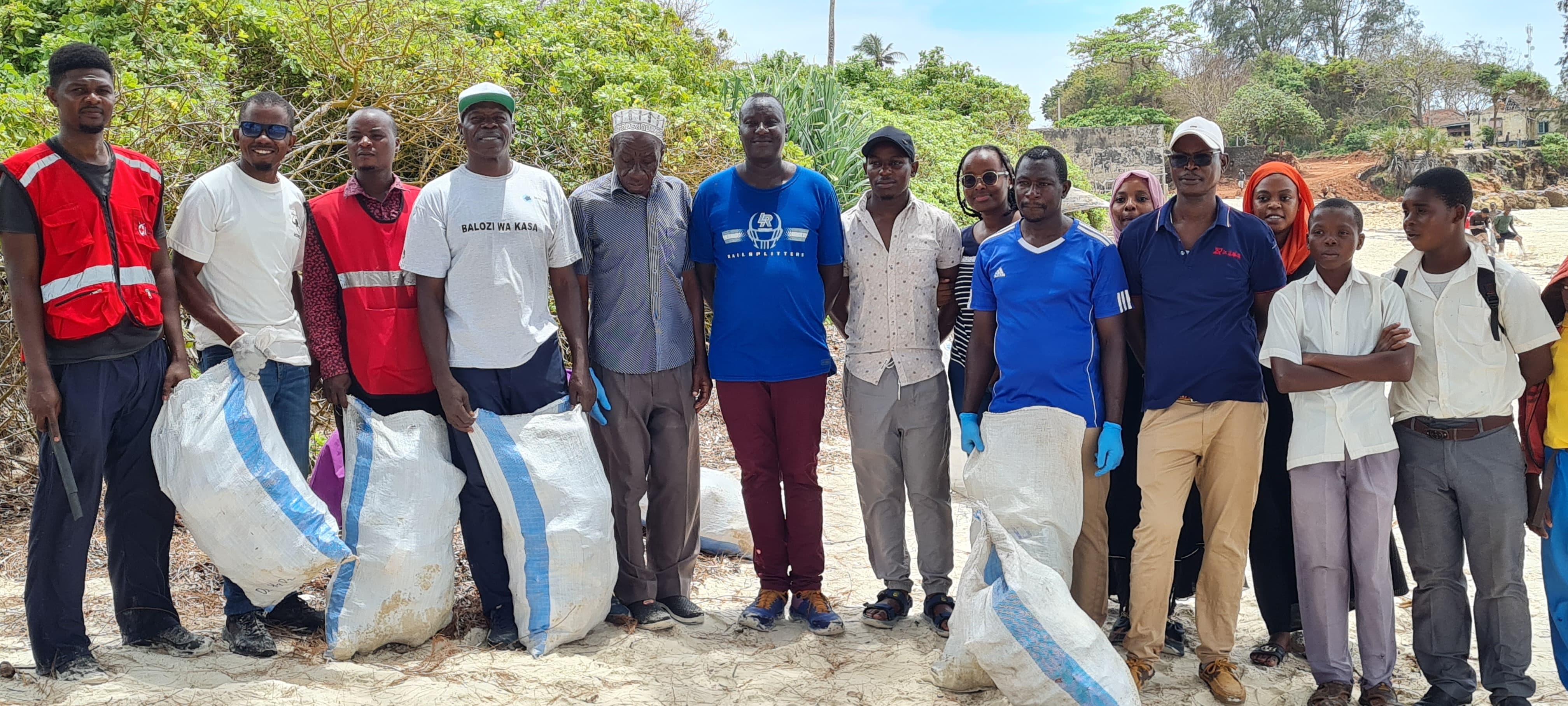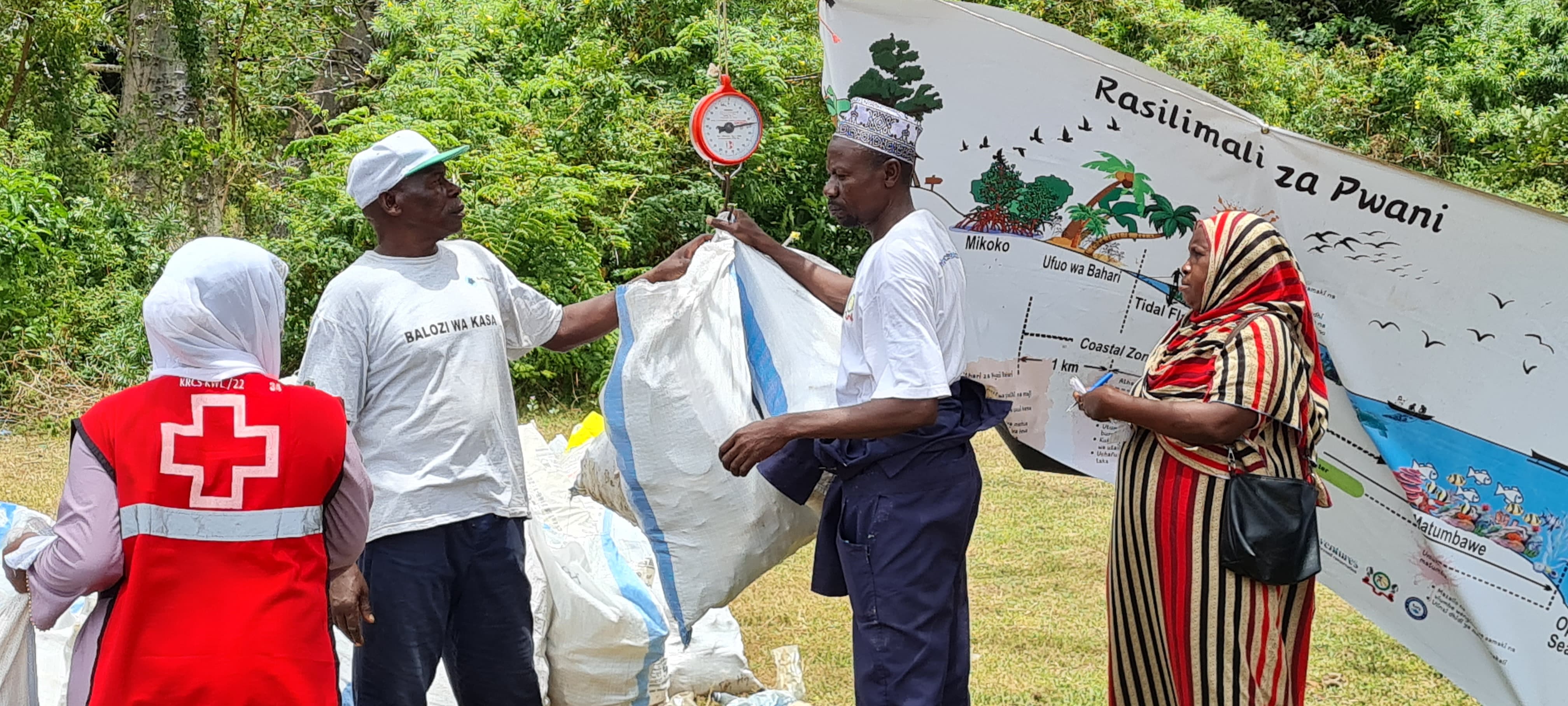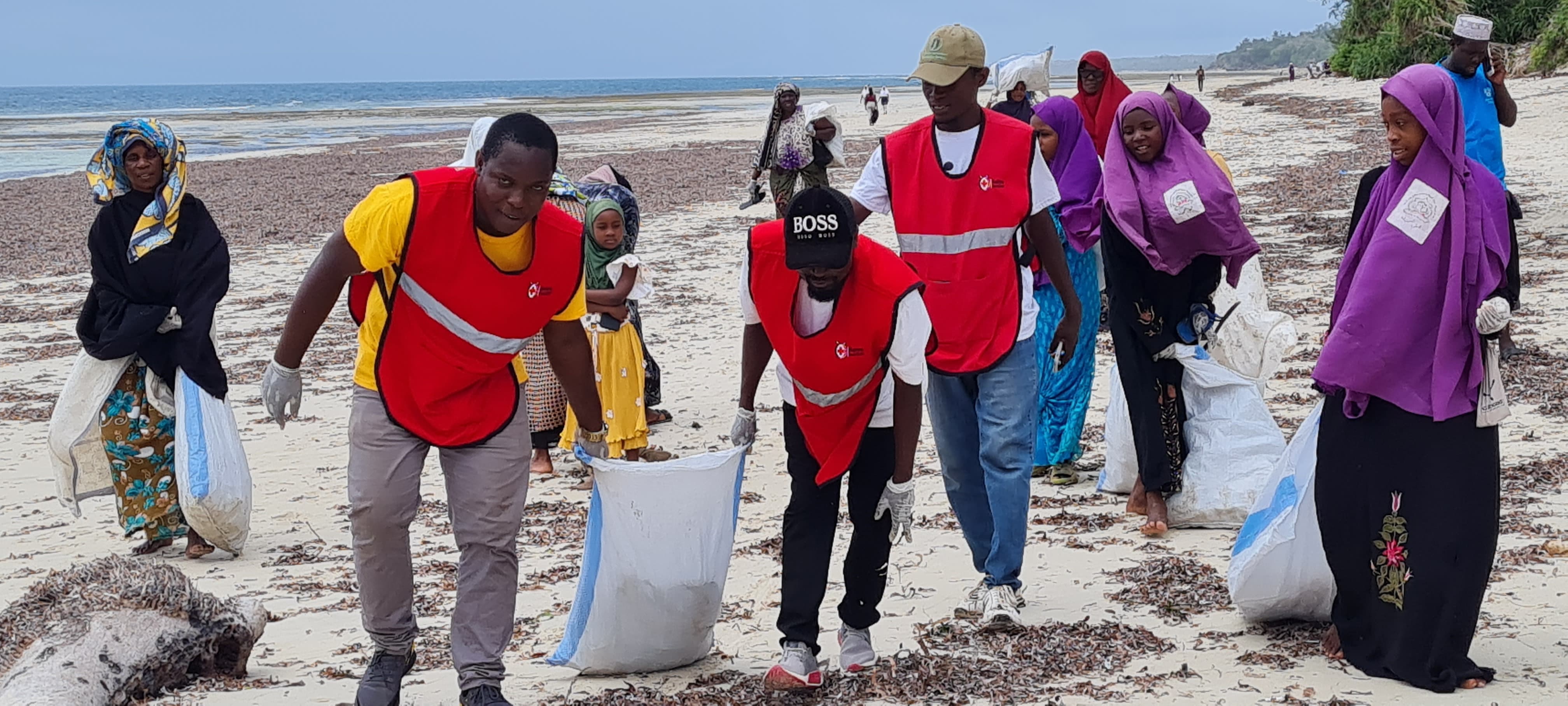
Environmentalists clean the Msambweni beach in
Kwale on Saturday / BRIAN OTIENO

Environmentalists at the Msambweni beach in Kwale
on Saturday / BRIAN OTIENO

Environmentalists weigh waste at Msambweni beach in
Kwale on Saturday / BRIAN OTIENO

Environmentalists clean the Msambweni beach in
Kwale on Saturday / BRIAN OTIENO
Environmental stakeholders in Kwale county want the ban on single use plastics extended to include plastic bottles to reduce environmental degradation.
The
environmentalists say the plastics ending up in the ocean have become a major
challenge.
Speaking during a beach cleanup activity in Msambweni to commemorate the International Coastal Cleanup Day on Saturday,
the stakeholders called for strict laws to address the
issue.
Isaac Maina, from the Africa Network for Animal
Welfare, said although the ban on single use plastic bags has helped a great
deal to reduce pollution, plastic bags are slowly returning as the laws are relaxed.
“We see the plastics bags still being used. We
need the government to be strict on the ban. Actually Kenya should completely
ban all plastics, including plastic bottles," he said.
“We need to look for other ways of using
biodegradable materials.”
Msambweni Turtle and Marine Conservation Group
chairman Hussein Mwabori said human enjoyment should not end up polluting
the environment.
“People come to the beach to enjoy the breeze and
the ocean, but they end up carelessly disposing of the plastic bottles and
wrappers they come with," he said.
“These end up in the ocean, where some marine
organisms like turtles swallow them and interfere with their biological systems
and die.”
He said turtles, who are a tourist attraction and
help bring in foreign exchange from foreign tourists, use the beach to lay
their eggs.
“Turtles are clean organisms who like to lay their
eggs in clean environments. When we pollute the beaches, they look for other
areas to lay their eggs. We end up missing the very organisms that help us get
income,” Mwabori said.
He said when turtles dig holes to lay their eggs,
they end up digging out the plastics, which sometimes suffocate them.
“We sensitise beach lovers to safely keep their
plastic bottles or wrappers to dispose of them in designated areas,” he said.
Maina said turtles will soon be declared
endangered species if humans keep polluting the beaches and the oceans.
“We need to jealously protect turtles. We have
seven species of turtles in the world, five of which are found in Kenya’s
coastal beaches,” he said.
He said turtles confuse plastics in the ocean for
seaweeds only to get suffocated.
The plastics discarded in the mainland eventually end up in the ocean.
“When marine organisms consume these plastics,
even in their microforms, they end up affecting the health of humans, who eat
these marine organisms like fish,” Maina said.
The two organisations have teamed up to protect
turtles along the South Coast.
Maina said the fashion industry is also becoming a
major polluter of the ocean.
“We sometimes carelessly dispose of our old
clothes and these end up in the ocean, and they affect our
marine organisms,” the environmentalist said.
He said although plastics are more of a threat
than clothes, the clothes are also becoming a significant problem.
Kenya Red Cross’ Ramadhan Sadik said through the
Empowering Youth for Climate Action initiative, they seek to influence positive
behaviour change, which he said is a major challenge.
Sadik said youth need to be empowered to
understand the dangers of plastics so they can embrace matters like recycling
of materials, which can be an income-generating venture.
He said turning waste into wealth is one way of
dealing with the unemployment crisis that youth find themselves in.
“We can use plastic waste to make cabros,
decorative materials and other aesthetics that can enhance the image of a
place, clean the environment and generate income for
youth,” Sadik said.
Margaret Mwihaki, from the Msambweni Beach House,
said as a hotel establishment, they have provided designated areas for disposal
of plastics, which are then taken for recycling.
The other wastes are either burned in a compost pit
or put in a designated place for the Kwale county government to pick and
dispose.
The Msambweni Beach House has also initiated
sustainable projects in the community that help keep the youth busy while sensitising them on the importance of pollution-free
environments.
“We have no plastics in the hotel. We use glass,”
she said.
Juma Hamisi, the Mwaembe Beach Management Unit
chairman, said the cleaner the beach and the ocean, the more attractive it is
to revellers and fish.
“It is not only the turtles that are affected by plastics in the ocean. Even the fish are affected, which also eventually affect us as humans because we eat fish,” Hamisi said.












